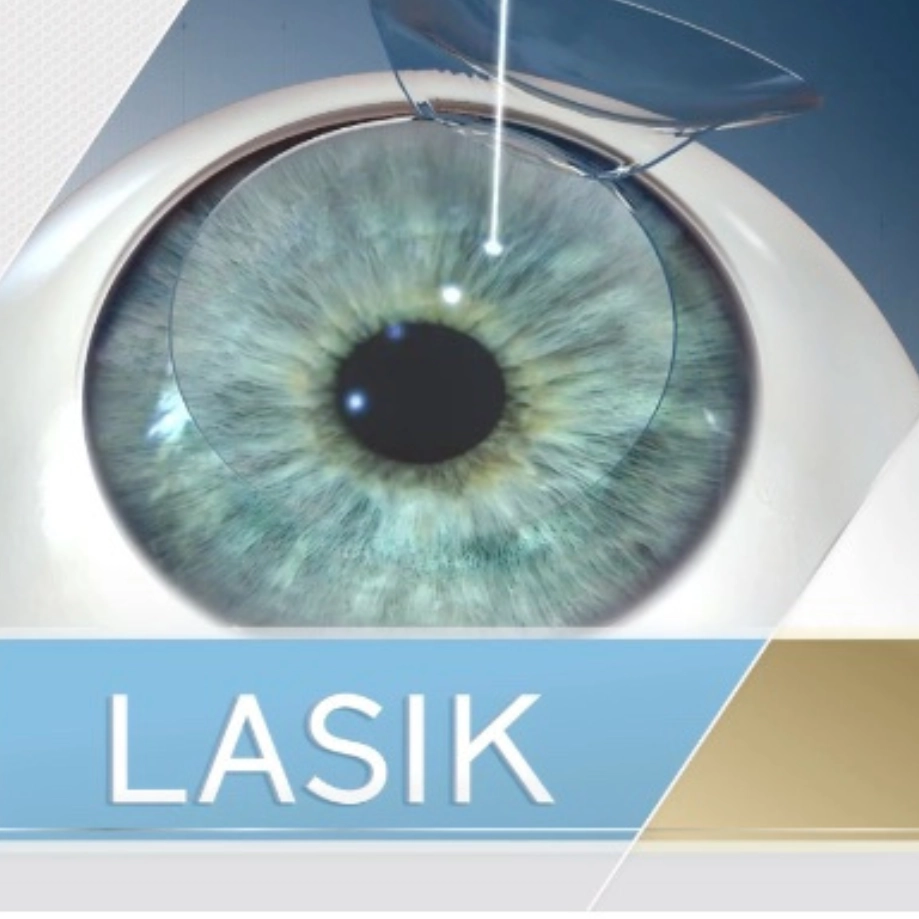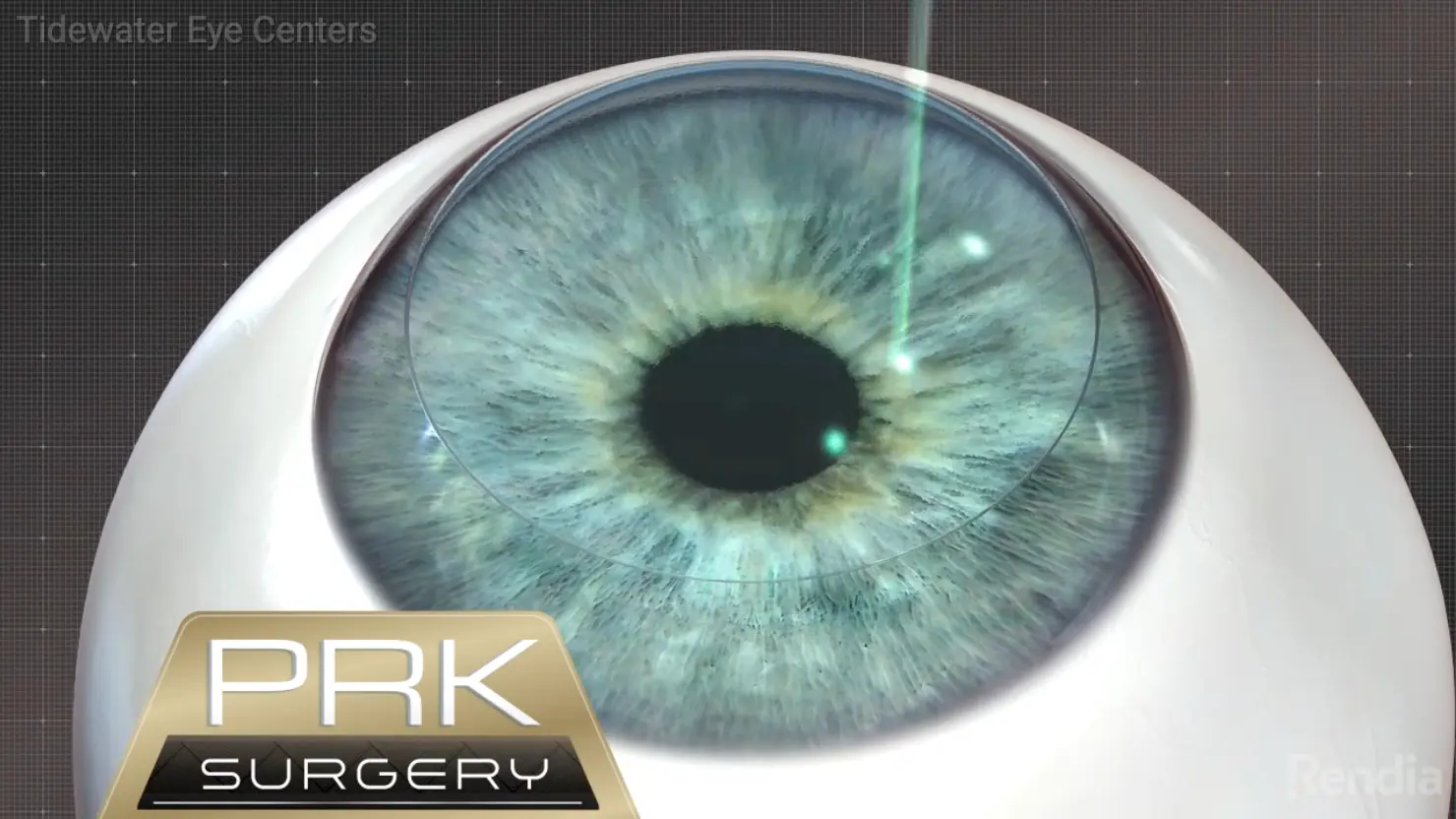Lifetime cost of glasses
and contacts:

PRK
If you are interested in reducing or eliminating your dependence on glasses or contact lenses, a laser eye surgery called PRK may be a good vision correction option.

What is PRK Vision Correction Surgery?
Often seen as a LASIK alternative, PRK stands for photorefractive keratectomy. This vision correction surgery reshapes the cornea to help patients achieve clearer vision. While similar to LASIK in that way, PRK can be an option for some patients who are not candidates for LASIK. Studies show that PRK offers comparable visual outcomes and patient satisfaction
Trusted Source
A Comparison of Visual Outcomes and Patient Satisfaction Between Photorefractive Keratectomy and Femtosecond Laser-Assisted In Situ Keratomileusis
Hashmani N, Hashmani S, Ramesh P, et al
Go to Source
rates.

PRK vs. LASIK
Like LASIK, PRK is performed to correct refractive errors by reshaping the cornea. Both procedures involve the use of an excimer laser to remove small amounts of corneal tissue, optimizing the shape of the cornea to properly refract (bend) light and create clearer images.
The main procedural difference between LASIK and PRK is the way the surgeon accesses the corneal tissue. During LASIK, a flap is created in the surface of the cornea then lasers are used to reshape the cornea. During PRK, the entire outermost layer of the cornea is removed before reshaping
Trusted Source
What is photorefractive keratectomy (PRK) eye surgery?
Cleveland Clinic
Go to Source
begins.
PRK and LASIK are both outpatient procedures, but the recovery period after PRK is slightly longer because the epithelial layer of the cornea needs to grow back. This typically takes 3-5 days. Additionally, PRK patients may need to wait slightly longer to realize the full extent of their vision correction than LASIK patients do. Still, despite a slightly longer recovery period and a longer wait to realize optimal vision, visual outcomes and patient satisfaction rates for PRK and LASIK are very similar.

PRK: What to Expect
Preparing for PRK
The first step in preparing for PRK is to undergo a thorough examination by your Tidewater eye doctor. At this time, you will have the opportunity to discuss all vision correction options and decide whether PRK is the best option for you. Our eye care team will give you detailed pre-surgery instructions.

How Does PRK Work?
Just like LASIK, PRK is a quick outpatient procedure performed at our Virginia Beach location. Though the surgery itself only takes minutes, you can expect to be at our office for a couple of hours.
Before PRK, you will be administered numbing eye drops to ensure your comfort. You may also be given a mild sedative to help you stay calm. A device called an optical speculum will be used to hold your eyes open and prevent you from blinking during the procedure.
To begin the PRK procedure, the surgeon will gently remove the outer layer of the cornea (the epithelial layer). Once the underlying tissue is exposed, the surgeon will use an excimer laser to reshape the cornea into a more spherical shape, helping light properly focus on the retina to improve vision.
Your surgeon will place a temporary contact lens over the cornea to protect your eyes as the epithelial cells regenerate. This should take roughly 3 -5 days, during which you will need to continue to wear this temporary contact lens at all times to protect your eyes.
Recovery After PRK
You will need to plan for a family member or friend to drive you home after your procedure.
As you recover from PRK, please avoid rubbing or touching your eyes as this could impede the healing process. Be sure to discuss any side effects you experience with your surgeon during your post-operative follow-up visits.

How Much are Glasses & Contacts Actually Costing You?
Please enter a valid value
Schedule a consultation appointment at Tidewater Eye Centers to better understand what your PRK procedure will cost.
Frequently Asked Questions About PRK
What does PRK treat?
PRK can treat a variety of refractive errors, including nearsightedness (myopia), farsightedness (hyperopia), and astigmatism.
Who is a good candidate for PRK?
The best way to determine if PRK is right for you is to meet with a Tidewater eye surgeon to discuss your vision correction options. In general, ideal PRK candidates:
- Are over the age of 21
- Have a stable refractive error (no prescription changes for at least 18 months)
- Have adequate corneal thickness
- Have generally healthy eyes
- Are in good overall health
- Understand potential risks of the procedure and have realistic expectations
What are the risks of PRK surgery?
Any surgical procedure carries some risk of side effects or complications, but PRK is widely regarded as a safe procedure. The most common risks of PRK, such as pain, slow recovery, or hazy vision, are temporary; while rare, more serious risks include under-or-over correction, corneal ectasia, and
Trusted Source
Main Complications of Photorefractive Keratectomy and their Management
Spadea L, Giovannetti F
Go to Source
dry eye.
Will PRK permanently correct my vision?
The changes made to your corneas during PRK are permanent, so the refractive error(s) treated by PRK will not return. However, as the eyes age it is possible for new vision corrections to arise. One such condition is presbyopia, age-related near vision loss. Even after PRK, people who develop presbyopia may require reading glasses for up-close tasks. It is also possible to develop cataracts after PRK, which may lead to blurry or cloudy vision and can be corrected with cataract surgery.
Can I have PRK on both eyes at once?
Yes. Actually, we prefer to perform PRK on both eyes during a single session, as this reduces our patients’ recovery period and time away from work.
Contact Tidewater Eye Centers in Virginia Beach
If you are interested in vision correction surgery and have been told you’re not a good candidate for LASIK, don’t worry. It may still be possible for you to achieve clear, crisp vision with PRK. To learn more about PRK, please fill out the form below to schedule a consultation with an experienced eye surgeon.
1 Hashmani N, Hashmani S, Ramesh P, et al. A Comparison of Visual Outcomes and Patient Satisfaction Between Photorefractive Keratectomy and Femtosecond Laser-Assisted In Situ Keratomileusis. Cureus. 2017;9(9):e1641. Published 2017 Sep 1. doi:10.7759/cureus.1641. Available: https://www.ncbi.nlm.nih.gov/pmc/articles/PMC5665689/.
2 Cleveland Clinic. What is photorefractive keratectomy (PRK) eye surgery? Available: https://my.clevelandclinic.org/health/treatments/8596-photorefractive-keratectomy-prk-eye-surgery. Accessed January 30, 2023
3 Spadea L, Giovannetti F. Main Complications of Photorefractive Keratectomy and their Management. Clin Ophthalmol. 2019 Nov 27;13:2305-2315. doi: 10.2147/OPTH.S233125. PMID: 31819355; PMCID: PMC6885542.
The doctors at Tidewater Eye Centers have either authored or reviewed the content on this site.